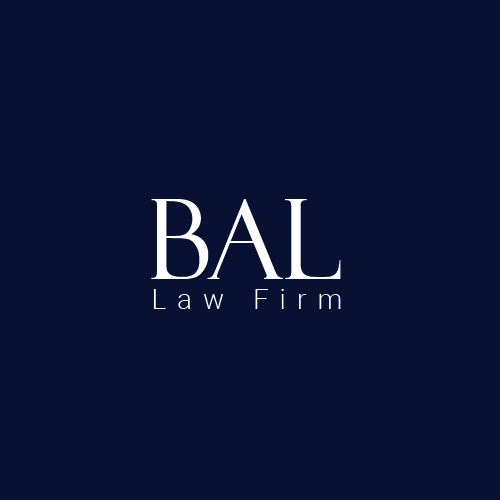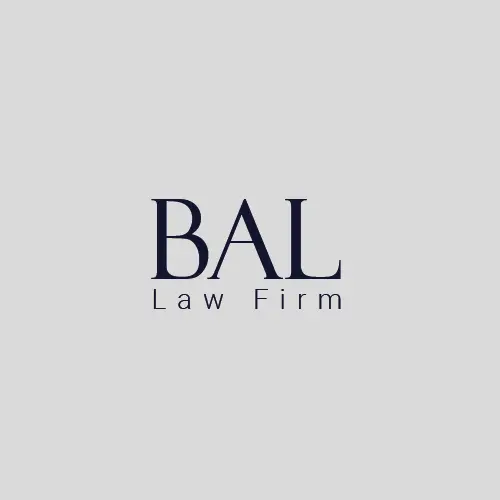BAL Law Firm Debt Collection Lawyer Services
We offer the legal services you need for the collection of your receivables in Turkey. We offer with our debt collection lawyer legal service;
- Debt collection,
- Actions for annulment and removal of objection,
- Negative Detection Cases,
- Enforcement Follow-up,
- Bankruptcy Tracking,
- Representation,
- Application,
- Money Collection,
- Check and Bill Collection,
- Proforma and Invoice Collection,
- Leased Flat or Workplace Evacuation,
I. What is Enforcement Proceeding?
Enforcement proceedings, in summary, is the legal way in which the creditor obtains his receivable against the debtor or that something is done or not done by force of the state. Enforcement proceedings are initiated in the Enforcement Offices operating under the Ministry of Justice.
II. Enforcement and Bankruptcy Law
There is a special law for debt collection in Turkey. This law is the Enforcement and Bankruptcy Law No. 2004. Procedures for debt collection are regulated in this law. However, the law is quite old. The language is quite heavy and difficult to understand. In addition, the procedures are quite complex. Although the law has been revised many times, the reforms have not made the process easier, but have put it in a very difficult situation. Almost everything in the Enforcement and Bankruptcy Law is bound to deadlines. Enforcement and bankruptcy law is taught as a compulsory course in law faculties in Turkey. For this reason, it is not possible for lawyers in Turkey to become lawyers, judges or prosecutors because they graduate without being successful in this course.
! No one other than lawyers / attorneys can do debt collection in Turkey. So beware of “debt collection companies and agencies”.
III. Adjectives and Institutions that Should be Known for Enforcement Proceeding
1. Enforcement Directorate / Enforcement Office
In Turkey, there are institutions affiliated to the Ministry of Justice for enforcement proceedings. These are called Enforcement Directorate / Enforcement Office. The Enforcement Directorate is the government office that fulfills the demands of the creditors within the framework stipulated in the law. Executive director, executive assistant director and bailiffs work in the Enforcement Directorate. The executive director and assistant directors decide on the requests. Enforcement officers also carry out the decisions made by the executive director and assistant directors.
In execution offices, requests are now made over the electronic system as a rule. This has facilitated the work of enforcement offices / enforcement offices and lawyers.
Enforcement Offices are generally located in courthouses and bear the name of the courthouse they are located in. For example, Bakırköy Executive Directorate, Istanbul Executive Directorate. If there is more than one enforcement office in the same courthouse, the enforcement offices are numbered. For example, Bakırköy 3rd Enforcement Office, Küçükçekmece 4th Enforcement Office.
Enforcement offices are the competent authorities for the collection of court decisions and receivables, such as mediation agreement minutes, mortgage and pledge receivables, contracts, checks and promissory notes.
According to the Constitution and laws of the Republic of Turkey, it is a crime for individuals to collect debts by force. The fact that people try to collect their receivables by force may cause crimes such as threats, extortion, violation of the immunity of the house.
Enforcement Directorates, on the other hand, have the legal authority to use force. Enforcement officers can open locked places, secure confiscated items, and place liens on money and other assets in the bank accounts of individuals or companies to enforce liens.
2. Creditor / Debtee
The creditor can be defined as the person who makes a request for the collection of money, the evacuation of a place, the execution of a court decision in the execution proceeding file. Even if the person making the request in the execution proceeding file takes the title of “Creditor”, this may not mean that that person is actually a creditor. In some cases, it may be possible for the party claiming to be a creditor to prove this with a court decision. This will be explained in detail in the procedural part of our article.
3. Debtor / Debitor
In enforcement proceedings, the party that the creditor wants to do something, pay a money, evacuate a place or not do something is called the “Debtor”. In the execution proceeding file, the creditor may not be a real creditor, and the person on the debtor’s side may not be a real debtor. These adjectives are the adjectives that the law uses specifically for the parties to the enforcement proceedings. For this reason, these adjectives are also used in execution proceedings.
4. Debt Collection Lawyer / Attorney
In the execution proceedings, the adjective “Attorney” is used for the lawyers of the creditor or debtor or third parties.
Individuals and institutions receive support from lawyers for the complexity of the Enforcement and Bankruptcy Law, how to make objections based on legal knowledge, and to follow the procedures professionally.
If the creditor or debtor or third parties receive the support of an attorney, that is, an executive lawyer, in the execution proceedings, the execution file will be followed by the lawyers and attorneys. For this reason, all kinds of notifications from this execution file will be sent to the attorney, that is, to the lawyer. The follow-up of the periods will also be done by the lawyer, that is, the attorney.
5. Courts
Although the Enforcement Directorates are subordinate to the Ministry of Justice, the decisions made by the executive directors and assistant directors are supervised by the Enforcement Courts. In this respect, there is a close relationship between enforcement offices and courts. In addition, the powers of enforcement offices are limited. As we will explain in the procedures section; For example, if the debtor objects to the payment order sent by the enforcement office within 7 days in the execution proceeding without judgment, the enforcement office will not be able to take any further action in the enforcement file. In this case, the creditor will have to file a lawsuit in court. Again, as will be explained in the procedures section, in case of objection to the enforcement proceedings, the court to be applied may not be only the Enforcement Court. Actions for annulment of the objection will have to be decided by the courts of general jurisdiction, namely the Civil Courts of Peace, Civil Courts of First Instance, Consumer Courts, Commercial Courts of First Instance, Intellectual and Industrial Property Rights Law Courts.
IV. How to Commence/Initiate Enforcement Proceeding in Turkey?
According to the Enforcement and Bankruptcy Law, there may be more than one way to commence, depending on the evidence tools you have available or what you request. If you do not have enough knowledge about enforcement procedures, you should definitely get legal help from lawyers and law firms whose profession is to provide professional support in this regard. Because the enforcement proceedings that you initiated incorrectly can cause loss of money, loss of time, and most importantly, loss of rights that cannot be recovered.
If the creditor has a court decision or a document that has the quality of a verdict, he will have to choose the way of enforcement proceedings with judgement. The enforcement proceeding with judgement way is also less costly. Moreover, the debtor’s objection to the payment order is quite limited.
There is no obligation to submit any documents to the enforcement directorate in order to initiate enforcement proceedings without judgment. However, when this enforcement proceeding without judgment is preferred, the process stops with a simple objection of the debtor. In this case, the creditor will have to prove his claim in court.
In addition, the creditor’s possession of a check or bill – promissory note may also provide the opportunity to collect his receivables through enforcement proceedings specific to bills of exchange. This process will be in favor of the creditor.
The law provides an easy collection method if the conditions for money receivables are met. This method is the provisional attachment method. In the provisional attachment method, on the other hand, in return for a certain security (or without security), a court decision is taken first and the debtor’s assets are lied before the normal notification procedures. The debtor’s right to object will begin after the lien on his assets.
V. What is Enforcement Proceedings Without Judgment? How to Initiate Enforcement Follow-up Without Judgment?
Enforcement proceeding without judgment is a procedure that can be initiated without any documents in the hands of the creditor. Period; It starts when the creditor makes a “request to issue enforcement proceedings” from the enforcement office by specifying the debtor’s information and the amount of the debt.
The enforcement office examines the request to issue enforcement proceedings and, if it accepts it, sends a “payment order” to the debtor’s address specified in the follow-up request. In the payment order, the amount of the debt, interest and other legal expenses (attorney’s fee, expenses, fees) are written briefly. The bank account number of the Enforcement Directorate is also included. It is also written that if the debt in question is not paid within 7 days, foreclosure proceedings may be initiated. It is stated that the debtor has the right to “appeal” that he does not have the debt in question, and that he can notify the said objection with a petition addressed to the enforcement office or verbally.
If the debtor objects within 7 days;
In the event that the debtor objects to the execution proceeding without judgment, the executive directorate makes a decision and decides to stay in the execution file in question. In this case, the creditor will have to win by filing a lawsuit for the annulment of the objection or the removal of the objection according to the documents in his possession, and to continue the enforcement proceedings by presenting the court decision to the enforcement office.
If the debtor does not object within 7 days;
If the debtor does not object to the payment order within 7 days; enforcement proceedings are finalized. This means that lien proceedings can now be initiated against the debtor. Information on foreclosure transactions is explained under the title of “Foreclosure Transactions”.
VI. Execution Proceeding Specific to Bills of Exchange
The creditor, who has a check, bond (promissory note) or policy taken from the debtor, may apply for enforcement proceedings specific to the bills of exchange. It can also use the provisional attachment procedure.
The creditor, who has a bill of exchange in his hand, can request an execution proceeding specific to bills of exchange from the enforcement office. The Enforcement Directorate sends a payment order to the debtor’s address specified in the request to issue enforcement proceedings. In this payment order, it is written that if there are complaints, they can make these complaints to the enforcement law court for 5 days, otherwise they have to pay for 10 days.
The debtor’s complaints may be related to the fact that the bill of exchange in question is time-barred, that the signature does not belong to him, and that the document is not delivered despite the debt being paid.
VII. Enforcement Proceeding with Judgement
The primary condition for carrying out enforcement proceedings with judgment is that it is a document in the nature of a verdict that will form the basis for the enforcement proceeding. The verdict can be a court order, mediation agreement document, or agreement that attorneys and clients sign together.
In the execution proceeding with judgement, the debtor is warned that he has to pay the debt within 7 days with a payment order, otherwise the foreclosure proceedings will be started. It is not possible for the debtor to object that he has no debt as in the execution proceeding without judgment.
VIII. Execution Proceedings Regarding Lease and Delivery of Real Estate Sample No: 13 and 14
There are two different enforcement proceedings regarding the leased real estates that can be initiated both for the purpose of collecting the rent or other debts or based on the eviction notice.
The lessor, while initiating enforcement proceedings based on non-payment of rental fees, may also request “Evacuation” due to non-payment of the said debt within 30 days. In this method of enforcement proceedings, if the debtor of the enforcement proceedings is not paid within 30 days from the notification of the payment order, if he has a written lease agreement, he can file an eviction lawsuit in the enforcement court and get an eviction decision.
If the tenant has a valid and suitable eviction notice; may request an evacuation with a different procedure based on the evacuation undertaking. If the tenant does not object to the eviction order, he has to evict the rented property within 15 days. If the tenant objects to the eviction order, the objection will have to be lifted and an eviction lawsuit will be filed in the enforcement court or the magistrate’s court, depending on the issues he objects to.
To obtain detailed information about the execution proceedings to be initiated by the lessor; You can review our articles on “How Do I Evict A Tenant in Turkey? “
X. Enforcement Proceedings Attachment/ Lien Stage
In enforcement proceedings with or without judgement, the attachment phase will begin after the finalization of the enforcement proceeding. A lien means that the disposal of a person’s assets is restricted by the executive directorate. The sale or donation of a seized property will not be possible.
It may be requested from the enforcement office to place a lien on the debtor’s vehicles, immovables, bank accounts, and other assets, if any. In case the sequestrated property is “movable”, it may also be possible to “conserve” the movable property in question. In this case, the seized property may be delivered to a person holding the title of “trustee” or to a person who has made this job a profession. This person will keep this property until the confiscated property is sold. Naturally, this person will be paid for this work.
XI. Sale of Impound Goods and Items
In order to collect the debt in Turkey, a lien is first applied to the debtor’s assets. If the seizure is money, there is no need for a sale stage. Because the money can be deposited directly to the executive directorate. For example, if there is money in the debtor’s bank account, the said money is put in a lien by the decision of the enforcement office. The bank will not pay the money to the borrower. The bank sends the money to the enforcement office. The executive directorate also gives the seized money to the creditor.
However, if the seized property is not money, the property in question must be sold and the money from the sale must be given to the creditor.
Only Lawyers / Attorneys and Law Firms can do debt collection in Turkey. ! No one other than lawyers / attorneys can do debt collection in Turkey. So beware of “debt collection companies and agencies”.
In order to collect debts in Turkey, it is necessary to resort to “execution without judgment” or “execution with judgment”. Check out our page for detailed information.
Do you looking for Debt Collection Lawyer / Attorney in Turkey & Istanbul?
At BAL Law Firm, we take pride in our ability to resolve complex legal challenges and provide sound advice and guidance to clients across diverse industries.








